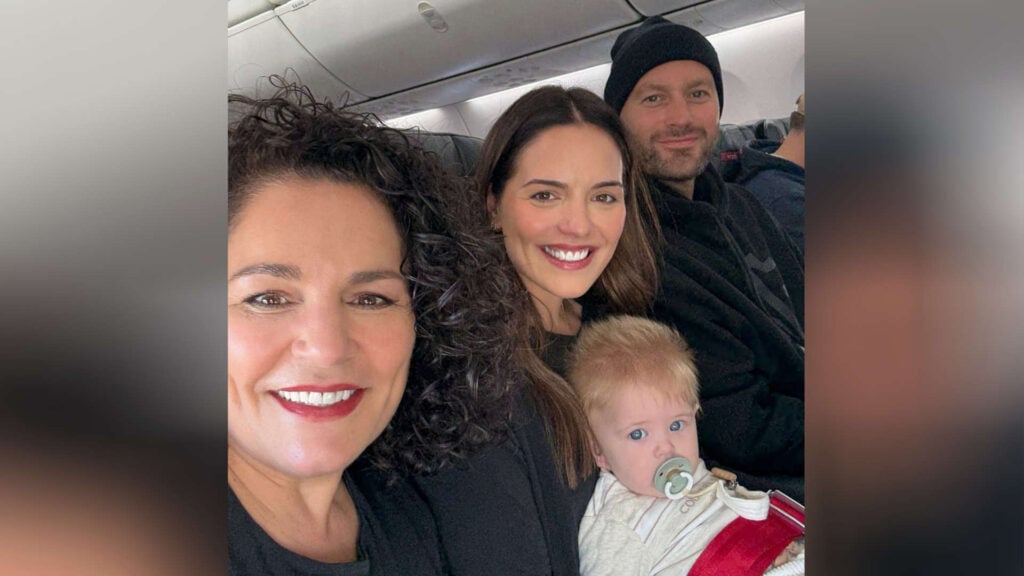Olympia Valance has joined leading fertility experts in urging schools to include education about infertility, egg freezing, and reproductive health in the national sex-education curriculum.
Speaking during Fertility Unpacked, an online panel discussion featuring leading specialists Dr Raelia Lew, Professor Nikolaos Polyzos, and advocate Cara Steggles, Valance said young Australians were being left in the dark about the realities of conception, egg health, and the emotional toll of infertility.
“I was so uneducated going through this process,” Valance said.
“Growing up, we were led to believe conceiving is straightforward. In sex-ed, all they ever talked about was ‘if you have sex, you will get pregnant’ – mind you, I think my art teacher taught that class. Nobody mentioned egg quality, egg quantity, or that they radically diminish with age. We should be learning about fertility and the option of freezing eggs at a younger age.”
Valance, who endured miscarriages before welcoming her son Billy in December, described her six-year IVF journey as “so traumatic” she has blocked much of it from memory.
She revealed her mother even offered to carry her baby, an offer she described as “super special” but ultimately too emotional for both her and her husband to accept.
The panel explored the emotional and financial strain of IVF, the latest medical research, and policy changes needed in Australia.
Professor Polyzos, a global authority on reproductive ageing, noted that women are increasingly seeking treatment in their 40s, making research into ovarian rejuvenation critical.
“Our labs are completely different to 10 or 20 years ago,” he said.
“The future is in understanding how to extend fertility health, because women are coming at more advanced ages.”
Dr Lew, medical director of Melbourne IVF, said policy restrictions in Australia were preventing some medical advancements from being implemented, despite their potential benefits.
Advocate Cara Steggles, who founded Fertility Support Australia after her own lengthy IVF journey, urged compassion towards oneself throughout the process.
“Sometimes in infertility, one month can feel like a month lost and three months can feel like forever. Looking back, I would have been kinder to myself and given myself more time.”
Currently, the Australian Curriculum does not specifically mention fertility education at any year level.
Victoria’s curriculum also omits it, while NSW will introduce fertility topics, including conception factors and reproductive technology into the compulsory PDHPE syllabus for Years 9 and 10 by 2027.
Medical experts argue that the current focus on contraception in sex-ed leads students to believe pregnancy is simple.
“Many of my patients think having a baby is as easy as removing a condom, and they’re shocked when it’s not,” said Dr Devora Lieberman of City Fertility NSW.
Education leaders, however, caution that fertility topics must be introduced in an age-appropriate way and ideally taught by qualified specialists. Tina King, president of the Australian Principals Federation, warned that “overloading students too early risks confusion and community pushback.”








